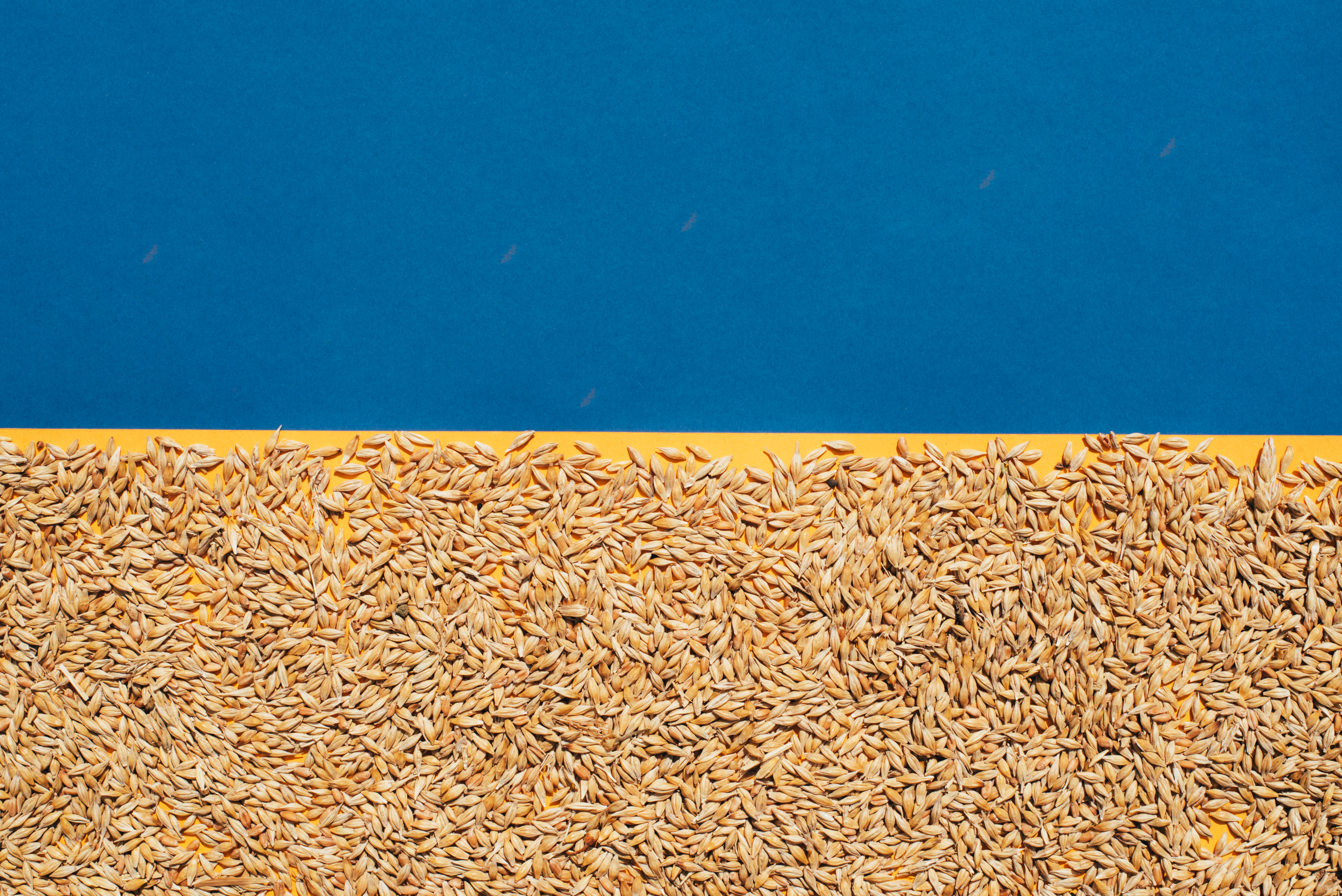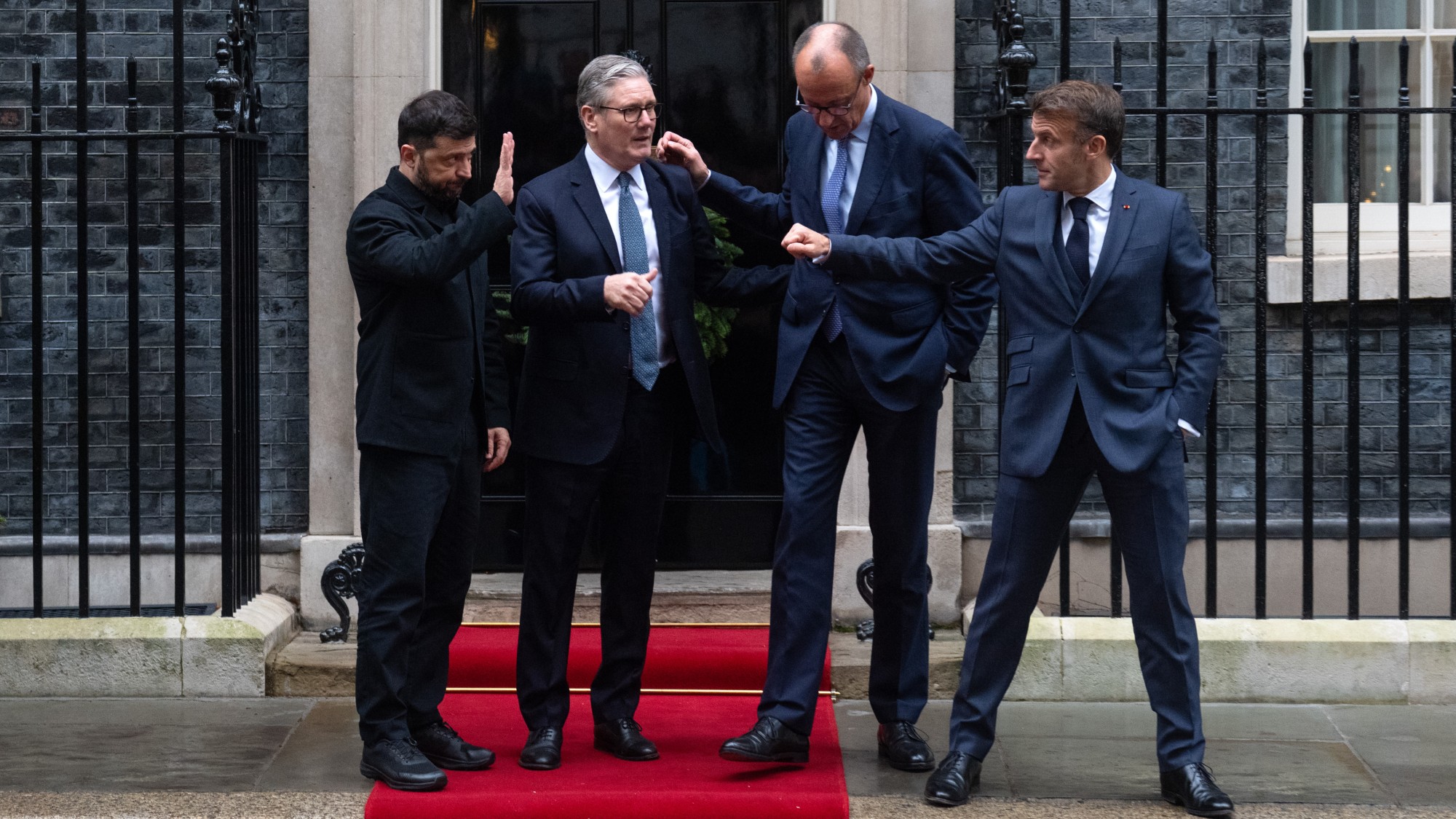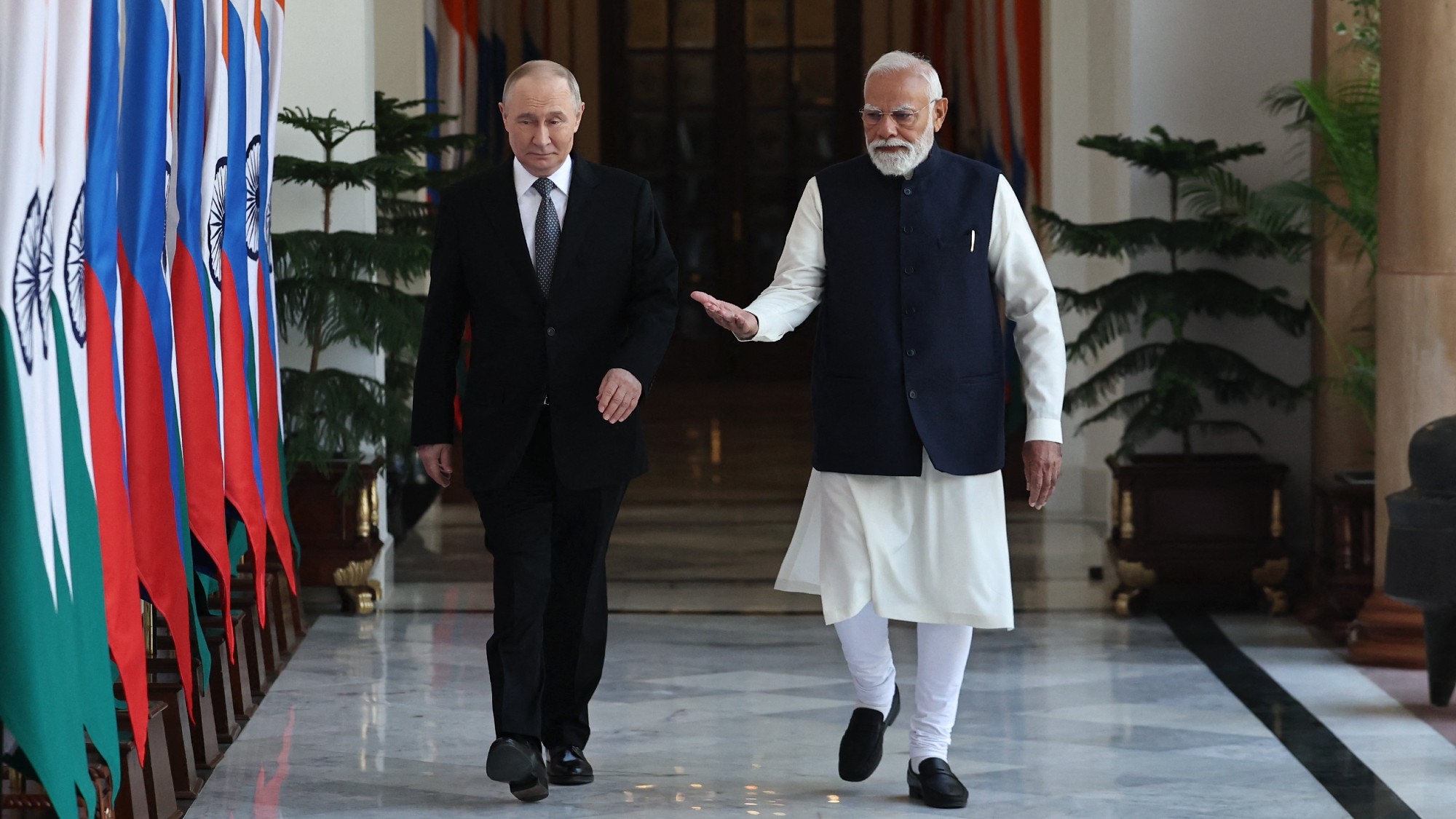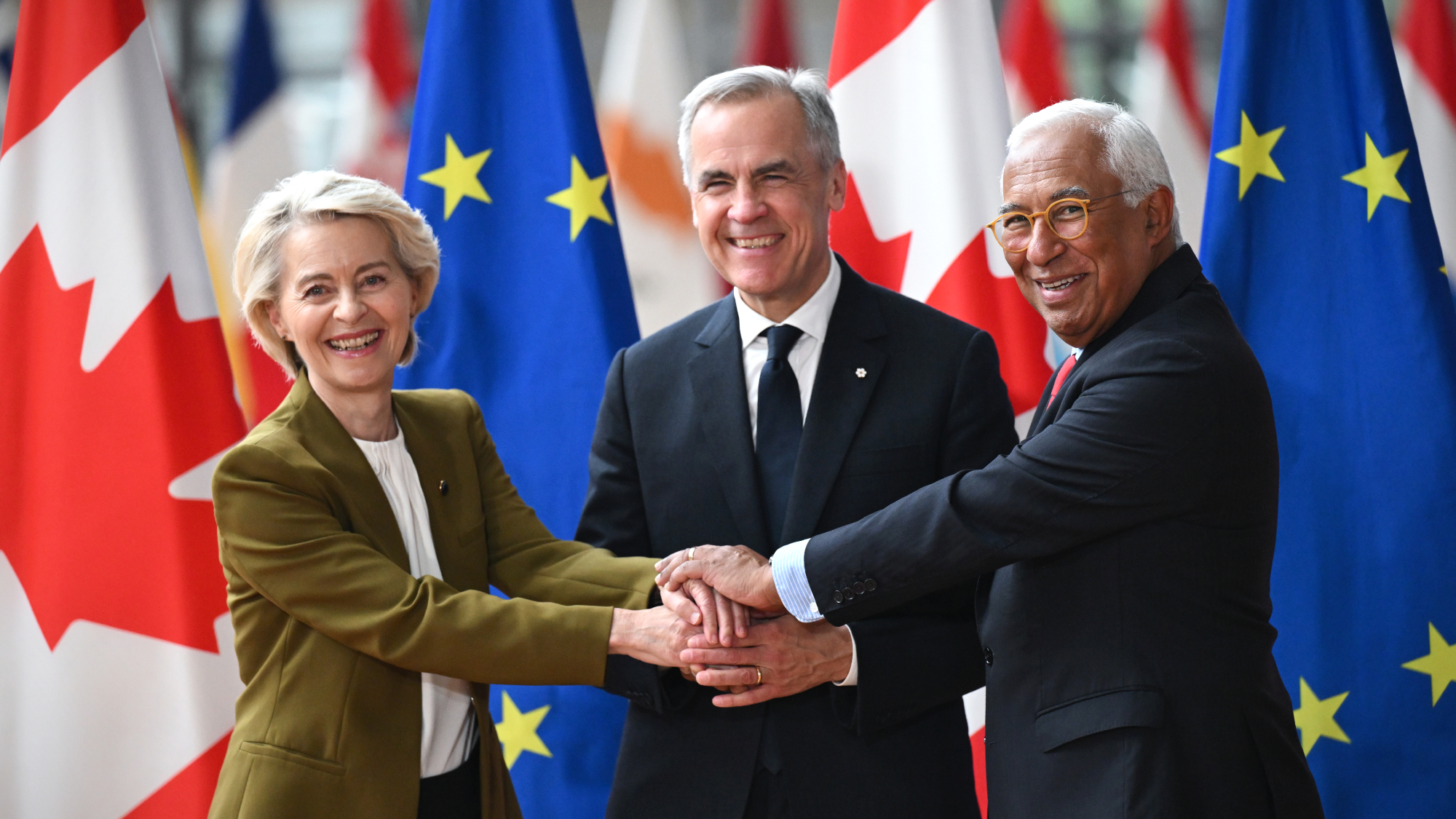Will Russia have to revive the Ukraine grain deal?
Blocking the shipment of Ukrainian agricultural products could put millions of people around the world in danger of severe hunger


Russia this week ended the Black Sea Grain Initiative, a deal that allowed Ukraine to export grain as its fight against a Russian invasion continued. Russia said it might revive the deal if it sees "concrete results" toward concessions it has demanded to help its agricultural industry, but a day after ending the agreement it fired missiles that damaged port facilities in Odesa, a key Ukrainian grain port, signaling difficult negotiations ahead.
Humanitarian organizations like the United Nations' World Food Program warned that blocking the shipment of Ukrainian agricultural products could create food shortages and put millions of people around the world in danger of severe hunger. Wheat futures briefly shot up by 4% after Russia's announcement, before falling back. World leaders have sounded the alarm, including U.N. Secretary-General Antonio Guterres, who said Russia's decision would "strike a blow to people in need everywhere." The question now is whether pressure and concessions can get the grain flowing again.
What made the Black Sea Grain Initiative necessary?
Russia blockaded Ukraine's ports after it invaded the country last year. Ukraine's harvests piled up in ports awaiting export. This fueled a global food crisis. Ukraine — the so-called breadbasket of Europe — is one of the world's top suppliers of wheat and corn, and the No. 1 exporter of sunflower meal and oil. The loss of its agricultural products drove up food prices around the world, worsening already painfully high inflation, and fueled shortages that hit especially hard in developing nations already facing acute food insecurity.
The Week
Escape your echo chamber. Get the facts behind the news, plus analysis from multiple perspectives.

Sign up for The Week's Free Newsletters
From our morning news briefing to a weekly Good News Newsletter, get the best of The Week delivered directly to your inbox.
From our morning news briefing to a weekly Good News Newsletter, get the best of The Week delivered directly to your inbox.
How did Ukraine and Russia agree to the deal?
The United Nations and Turkey brokered the agreement to help ease the humanitarian disaster. Russia and Ukraine signed in July 2022. The pact permitted Ukraine to export grain and other agricultural products from three of its ports, with inspections before ships got underway. With assurance of safe passage from Russia, shippers were once again able to insure their vessels and cargo, and start delivering Ukraine's stockpiled grain. The deal also ensured the free flow of food exports and fertilizer from Russia, also a major producer of grain and edible oils.
Did that solve the problem?
It had an immediate and lasting impact. While the deal was in place, Ukraine exported 32 million metric tons of grain from the affected ports. About 57 percent of the food went to developing nations. China got the biggest share of any single country — nearly a quarter of the total. Food prices, which had hit record highs after the invasion, came down, and continued falling as the initial four-month deal was extended three times (Russia suspended it for a few days once before, last November). Wheat prices fell 14% this year before Russia pulled the plug on the deal when its latest extension expired Monday. Corn prices had fallen 23% in 2023.
Who did the deal help the most?
Needy people in countries served by the World Food Program, including Ethiopia, Somalia, and Yemen, were big beneficiaries. About 2.2% of the grains shipped through the safe Black Sea corridor went to those and other nations struggling to feed their populations. Those countries now stand to suffer disproportionately from the collapse of the grain deal. "With approximately 80% of East Africa's grain being exported from Russia and Ukraine, over 50 million people across East Africa are facing hunger, and food prices have shot up by nearly 40% this year," said Shashwat Saraf, regional emergency director for East Africa at the International Rescue Committee.
Why did Russia end the deal?
Russia says the arrangement was tilted in favor of Ukraine. Moscow said it was living up to its end of the bargain, letting ships get into and out of Ukraine's ports without coming under attack. Ukrainian farmers were again free to sell their corn, barley, wheat, and sunflower oil. But Russia said it wasn't getting promised relief, claiming sanctions were making it harder for Russia to sell its agricultural products. Moscow is demanding that its agricultural bank be allowed back into the SWIFT international payment system. It also wants other sanctions to be eased. But many analysts say other factors were really what drove the Kremlin's decision. "Russia's claim that it's suffering under this initiative is just absurd," Caitlin Welsh, the director of global food security at the Center for Strategic and International Studies, told Foreign Policy.
A free daily email with the biggest news stories of the day – and the best features from TheWeek.com
What else might be behind the change?
Many analysts say Russia was responding to Ukraine's new counteroffensive, particularly its apparent responsibility for a drone attack that damaged a key bridge connecting Russia to the Crimean Peninsula, a part of Ukraine that Russia seized and annexed in 2014. Moscow says the decision had nothing to do with the bridge attack, which the Kremlin called a terrorist act. The explosions, which occurred a day before Russia ended the grain deal, killed two people and forced a brief shutdown of traffic across the 12-mile bridge, which Russia relies on to resupply its troops in Crimea. Foreign backing of Ukraine, like the U.S. decision to provide Ukraine with cluster munitions, also might have been a factor, according to some observers.
Is there any hope Russia will change its mind?
International pressure is already intense. Western countries are hoping China can help persuade Russian President Vladimir Putin to revive the deal. Beijing, Moscow's most powerful ally, has relied increasingly on Ukrainian grain supplies in recent years and was the biggest recipient of food shipped under the Black Sea deal. Amma Hideo, former Moscow bureau chief for Japan's NHK World-Japan, said a new blockade of Ukrainian grain could hurt Russia's reputation in Africa, which Moscow considers strategically important. This, he suggested, might intensify pressure on Moscow to reconsider, and revive the ban after gaining some concessions.
Harold Maass is a contributing editor at The Week. He has been writing for The Week since the 2001 debut of the U.S. print edition and served as editor of TheWeek.com when it launched in 2008. Harold started his career as a newspaper reporter in South Florida and Haiti. He has previously worked for a variety of news outlets, including The Miami Herald, ABC News and Fox News, and for several years wrote a daily roundup of financial news for The Week and Yahoo Finance.
-
 World’s oldest rock art discovered in Indonesia
World’s oldest rock art discovered in IndonesiaUnder the Radar Ancient handprint on Sulawesi cave wall suggests complexity of thought, challenging long-held belief that human intelligence erupted in Europe
-
 Claude Code: the viral AI coding app making a splash in tech
Claude Code: the viral AI coding app making a splash in techThe Explainer Engineers and noncoders alike are helping the app go viral
-
 ‘Human trafficking isn’t something that happens “somewhere else”’
‘Human trafficking isn’t something that happens “somewhere else”’Instant Opinion Opinion, comment and editorials of the day
-
 Trump considers giving Ukraine a security guarantee
Trump considers giving Ukraine a security guaranteeTalking Points Zelenskyy says it is a requirement for peace. Will Putin go along?
-
 Vance’s ‘next move will reveal whether the conservative movement can move past Trump’
Vance’s ‘next move will reveal whether the conservative movement can move past Trump’Instant Opinion Opinion, comment and editorials of the day
-
 What have Trump’s Mar-a-Lago summits achieved?
What have Trump’s Mar-a-Lago summits achieved?Today’s big question Zelenskyy and Netanyahu meet the president in his Palm Beach ‘Winter White House’
-
 Who is paying for Europe’s €90bn Ukraine loan?
Who is paying for Europe’s €90bn Ukraine loan?Today’s Big Question Kyiv secures crucial funding but the EU ‘blinked’ at the chance to strike a bold blow against Russia
-
 Will there be peace before Christmas in Ukraine?
Will there be peace before Christmas in Ukraine?Today's Big Question Discussions over the weekend could see a unified set of proposals from EU, UK and US to present to Moscow
-
 Moscow cheers Trump’s new ‘America First’ strategy
Moscow cheers Trump’s new ‘America First’ strategyspeed read The president’s national security strategy seeks ‘strategic stability’ with Russia
-
 Is a Putin-Modi love-in a worry for the West?
Is a Putin-Modi love-in a worry for the West?Today’s Big Question The Indian leader is walking a ‘tightrope’ between Russia and the United States
-
 Canada joins EU’s $170B SAFE defense fund
Canada joins EU’s $170B SAFE defense fundspeed read This makes it the first non-European Union country in the Security Action for Europe (SAFE) initiative
